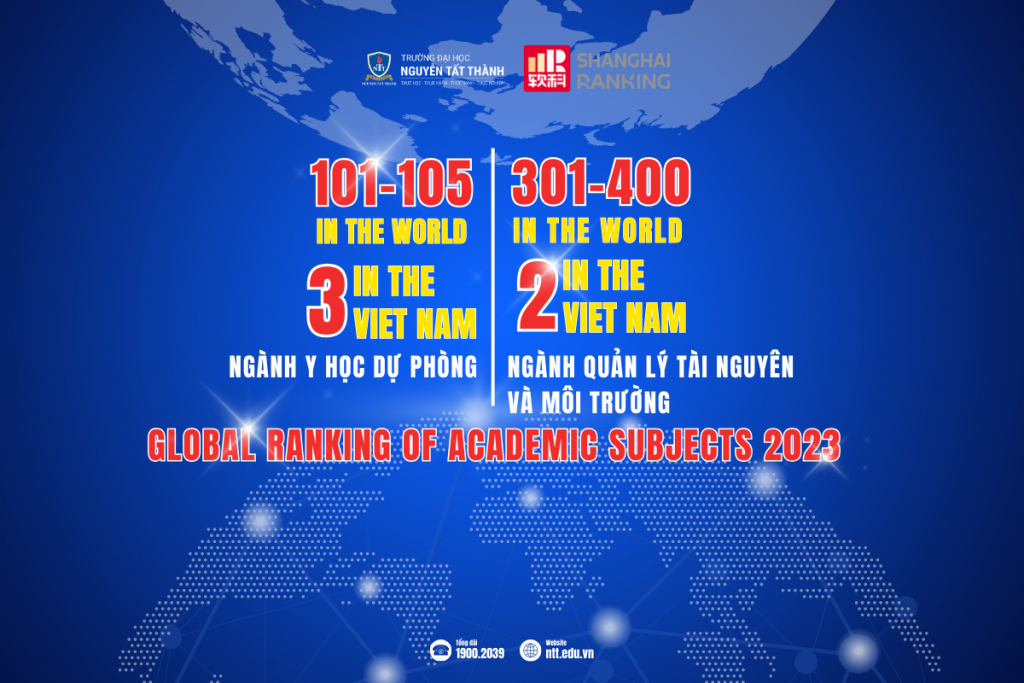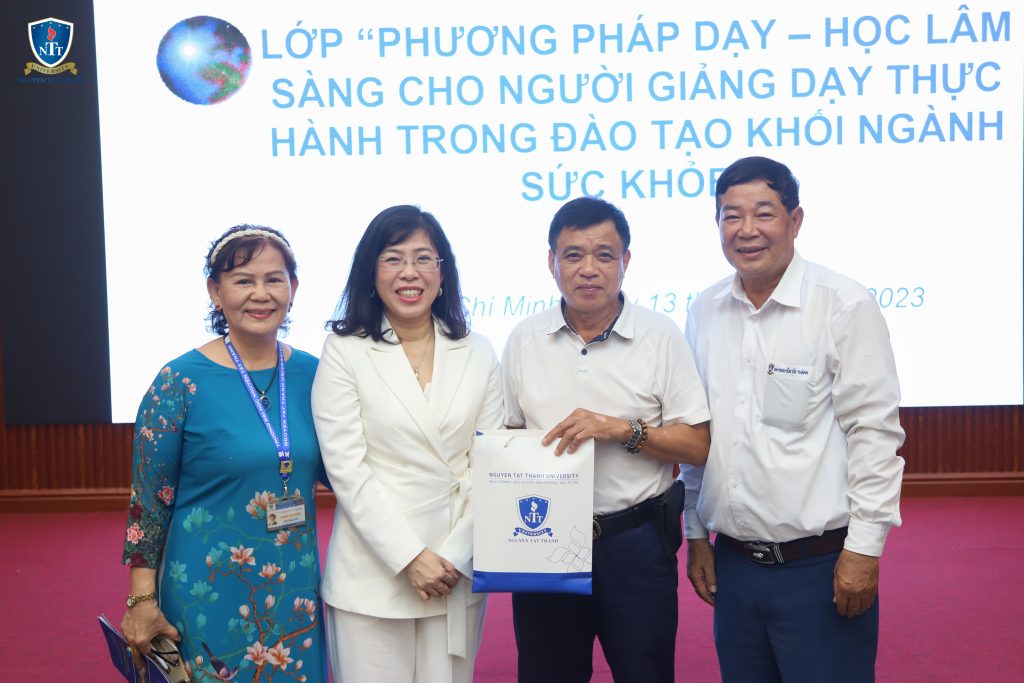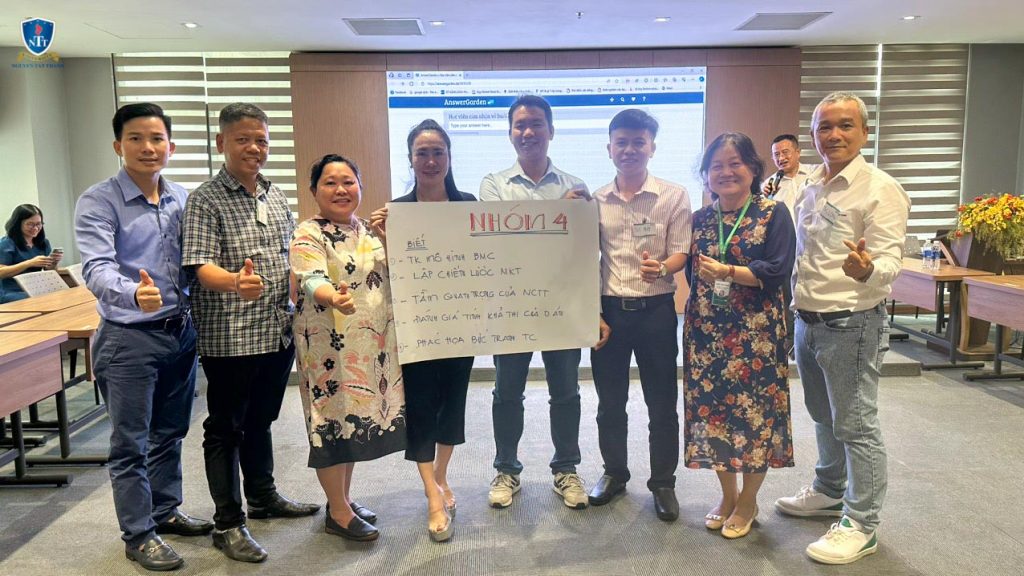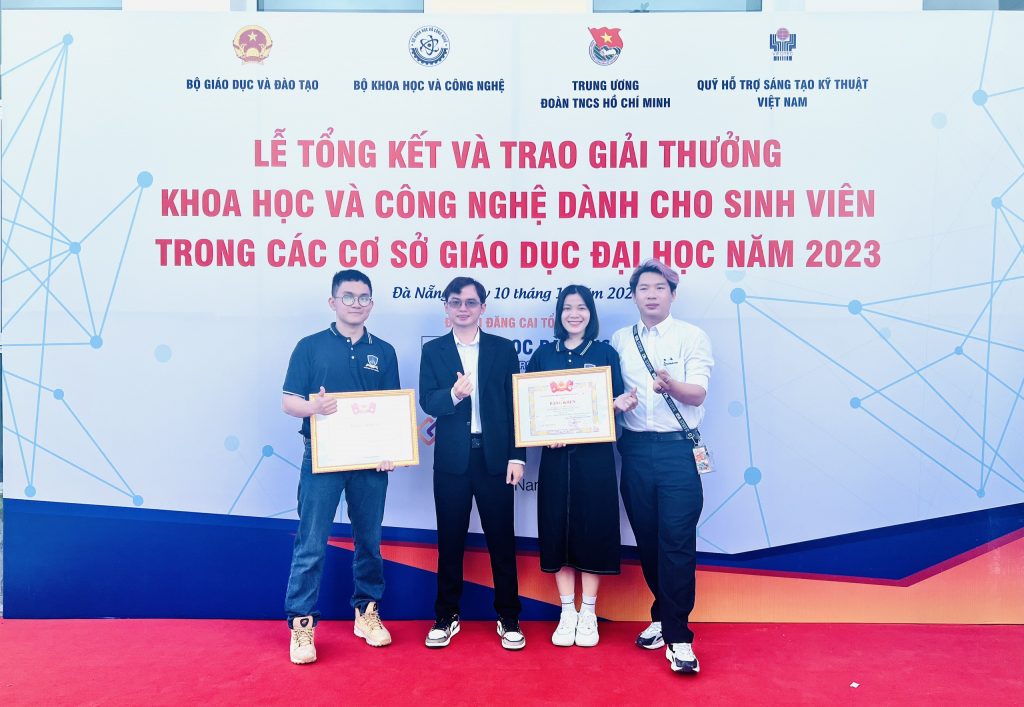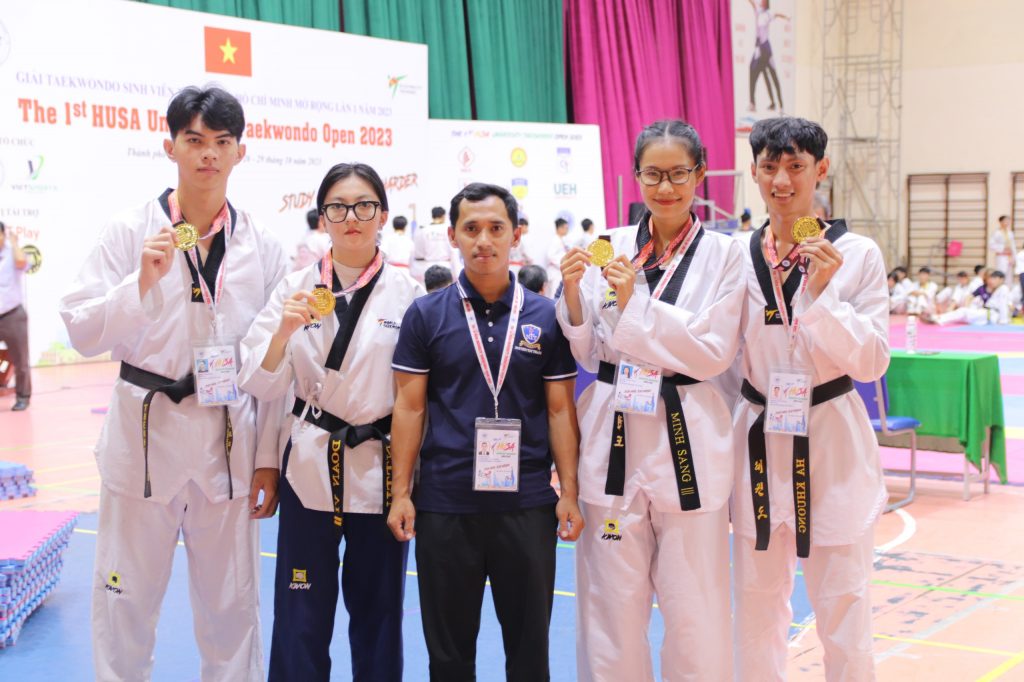Workshop: “Monitoring of microplastic waste pollution instead of the traditional biological indicator is the monitoring of bivalve molluscs – a new superior solution contributing to the assessment of the pollution level of the hydrosphere environment”
On February 22nd, 2022, các nhà cái uy tín siyanks.com - App game đổi thưởng uy tín (NTTU) held a workshop: “Monitoring microplastic waste pollution instead of the traditional biological indicator of bivalve molluscs – a new superior solution contributing to the assessment of the pollution level of the hydrosphere environment” for lecturers, researchers and students
The workshop welcomed the presence of speakers including Prof. Dr. Pham Hung Viet – Director of the Key Laboratory of Analytical Technology for Environmental Quality and Food Safety Control (KLATEFOS), University of Sciences, Vietnam National University, Hanoi. On behalf of NTTU, Assoc. Prof. Dr. Tran Thi Hong – Vice President and Director of the Interdisciplinary Institute of Social Sciences, Assoc.Prof.Dr. Bach Long Giang – Head of Science and Technology Department along with many lecturers from faculties, institutes, departments, and nearly 500 students attended the workshop via Zoom and NTTU’s Fanpage.
At the seminar, Assoc. Prof. Dr. Tran Thi Hong – Vice President shared that it was a great honor to welcome and work with Prof. Dr. Pham Hung Viet – one of the leading professors in Vietnam in the field of Chemistry – Food Technology. NTTU always hopes to cooperate with leading domestic and foreign scholars such as Professor Viet to organize seminars and scientific conferences to improve the teaching and scientific research capability of NTTU’s lecturers and researchers in terms of approaching new research problems and technologies, meanwhile supporting students more in the process of learning and conducting scientific research.

Prof. Dr. Pham Hung Viet and Assoc. Prof. Dr. Tran Thi Hong discussed with each other at the conference
Prof. Dr . Pham Hung Viet shared the following content in his scientific report
- Products made of plastic have contributed to changing human life thanks to its durability, heat resistance, and competitive price. However, besides those benefits, there are also certain difficulties for sustainable development. Currently, plastic waste is one of the leading topics in environmental pollution research. There are 8,300 million tons of plastic waste produced so far, as of 2015: approximately 6300 million tons of plastic waste has been generated. It is forecasted that by 2050, about 12,000 million tons of plastic waste will be buried or released into the natural environment. The first studies on plastic pollution were carried out in 1972 focusing on medium to large sized plastic waste and plastic pellets. Although macroplastics pose easily observable risks such as choking, intestinal obstruction and digestive problems to marine organisms, the risks posed by microplastics with large size < 5 mm (microplastics) are still attracting attention of scientists. According to a report written by Laist (1997), at least 267 species of organisms are affected by plastic waste: The confusion that microplastics are food has caused the death of many marine species including whales, turtles and seagull,…. Digestion of microplastic has been reported in plankton and larvae at the bottom of the food chain, in invertebrates (shrimp, mussels, clams, crabs) and in fish (anchovies, goby, zebrafish, and red snapper etc.). The reason is because small organisms such as zooplankton, which confuse microplastics with food, so they swallow it. They then become food for small fish, then large fish, and finally, microplastics accumulate everywhere in the food chain of marine ecosystems.
- The most important thing is that microplastics may contain some additives that are potentially harmful to organisms such as phthalates (plasticizers), bisphenol A (BPA – antioxidant additives), PBDEs (polybromine diphenyl ether – flame retardant additives), etc. In addition, microplastics have good ability to absorb and accumulate persistent organic pollutants such as polyclobiphenyls (PCBs), condensing polycyclic aromatic hydrocarbons (PAHs), organochlorine pesticides (OCPs) and other heavy metals from the environment. Therefore, they also transport toxic chemicals that increase the penetration of these substances entering the food chain. Previously, the Mussel Watch Program was deployed along the US coast for two decades to monitor the toxicities of DDT, PAHs and PCBs in bivalves as an indirect way to monitor environmental and public health risks. The analysis of water samples, sediment samples and ancient sedimentary columns in the sea to measure PCBs levels helps us assess the extent and reconstruct the history of hydrosphere pollution. Nowadays, the monitor of chemicals absorbed on microplastics is considered as a potential new approach to contribute to the assessment of pollution levels of organic toxins in the aquatic environment.
- In Vietnam, at the beginning of 2020, the Government has developed the “National Action Plan on ocean plastic waste management to 2030” to assess the risks of pollution and impacts of plastic waste, especially of microplastics on seas and oceans, marine ecosystems, the environment and human health. In the southern region, there is currently no overall research on microplastics, we can do surveys to assess the extent of microplastic pollution affecting people’s lives in freshwater ponds and shrimp farming areas, waste landfill and waste treatment. The presenter said that the current young generation, especially members of youth unions, should be the leading force to limit plastic waste and use environmentally friendly materials.
Also at the seminar, NTTU’s president thanked the useful information from the scientific report of Prof. Dr. Pham Hung Viet and hopes that the Key Laboratory of Analytical Technology for Environmental Quality and Food Safety Control (KLATEFOS), University of Sciences, Vietnam National University, Hanoi will sign a cooperative agreement with NTTU to support training on the use of KLATEFOS’s high-tech laboratory as well as improve the teaching competency of lecturers, researchers and excellent students in the field of Chemistry – Food Technology. Prof. Dr. Pham Hung Viet thanked the University for the kindness and hoped both sides to reach a comprehensive cooperative agreement soon. Professor Viet said that NTTU is one of the leading non-public universities in Vietnam in the field of scientific research, the fact that the University always creates favorable conditions for lecturers and researchers will soon help the University to affirm its worldwide position in terms of scientific research. In the near future, Prof. Dr. Pham Hung Viet hopes to invite NTTU to be a member of the Southern Regional Microplastic Research Council.
At the end of the seminar, Assoc. Prof. Dr. Tran Thi Hong – Vice President represented NTTU to give flowers as gift to thank Prof. Dr. Pham Hung Viet for sharing his scientific report on microplastic pollution. Although it was organized through two forms, primarily through online platform, the workshop was filled with questions from lecturers and students of NTTU and answers from the speakers. .
Some pictures of the workshop
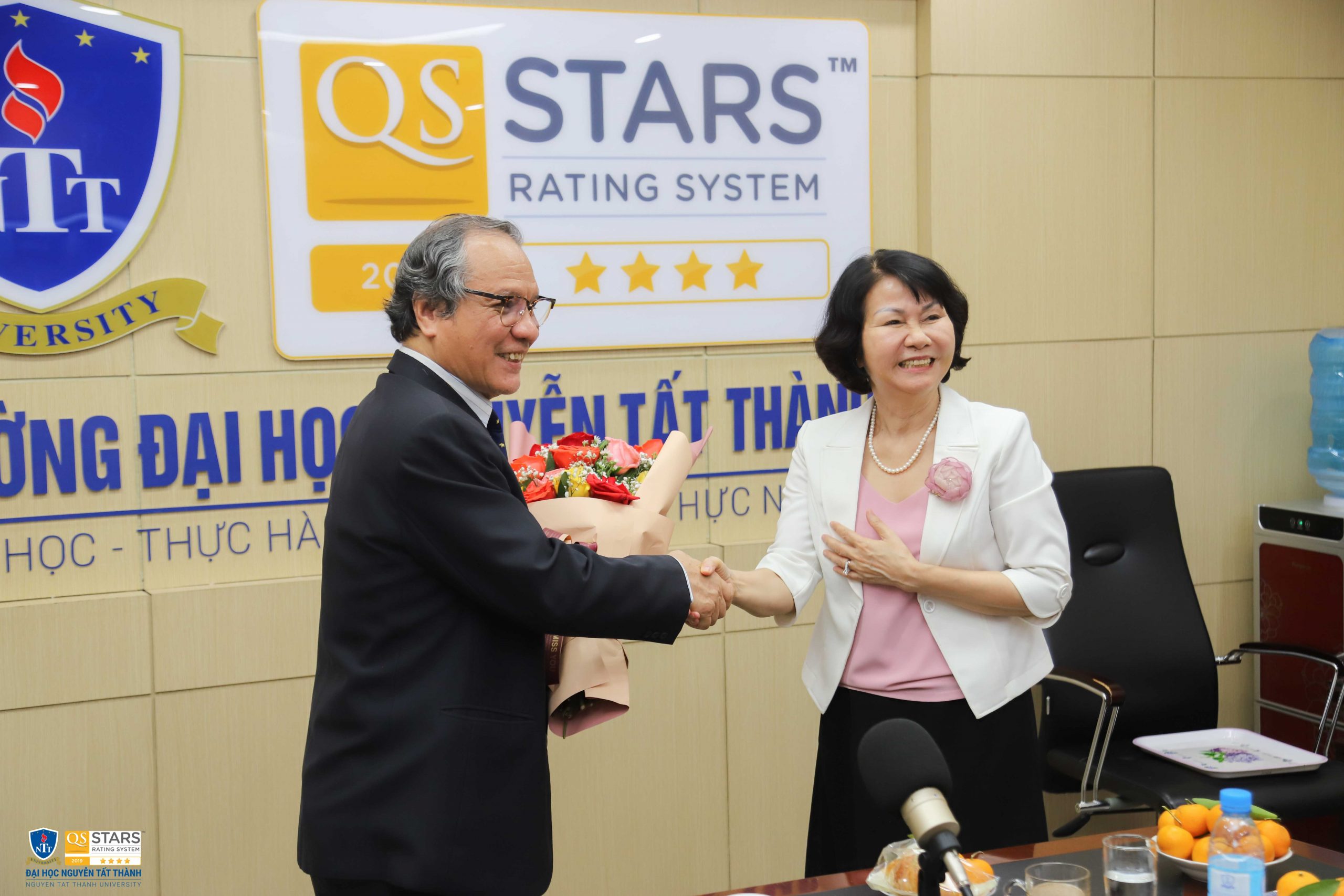
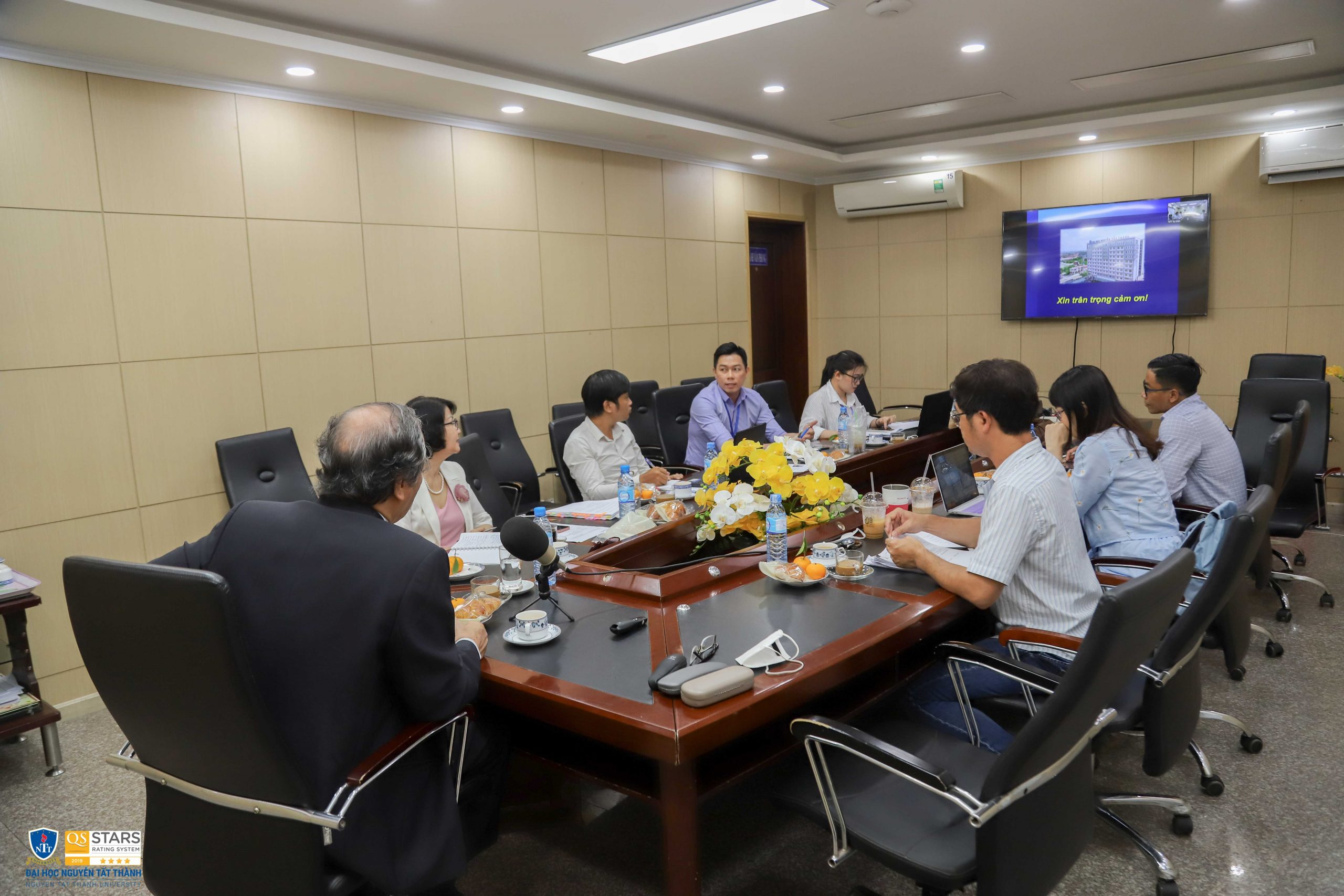
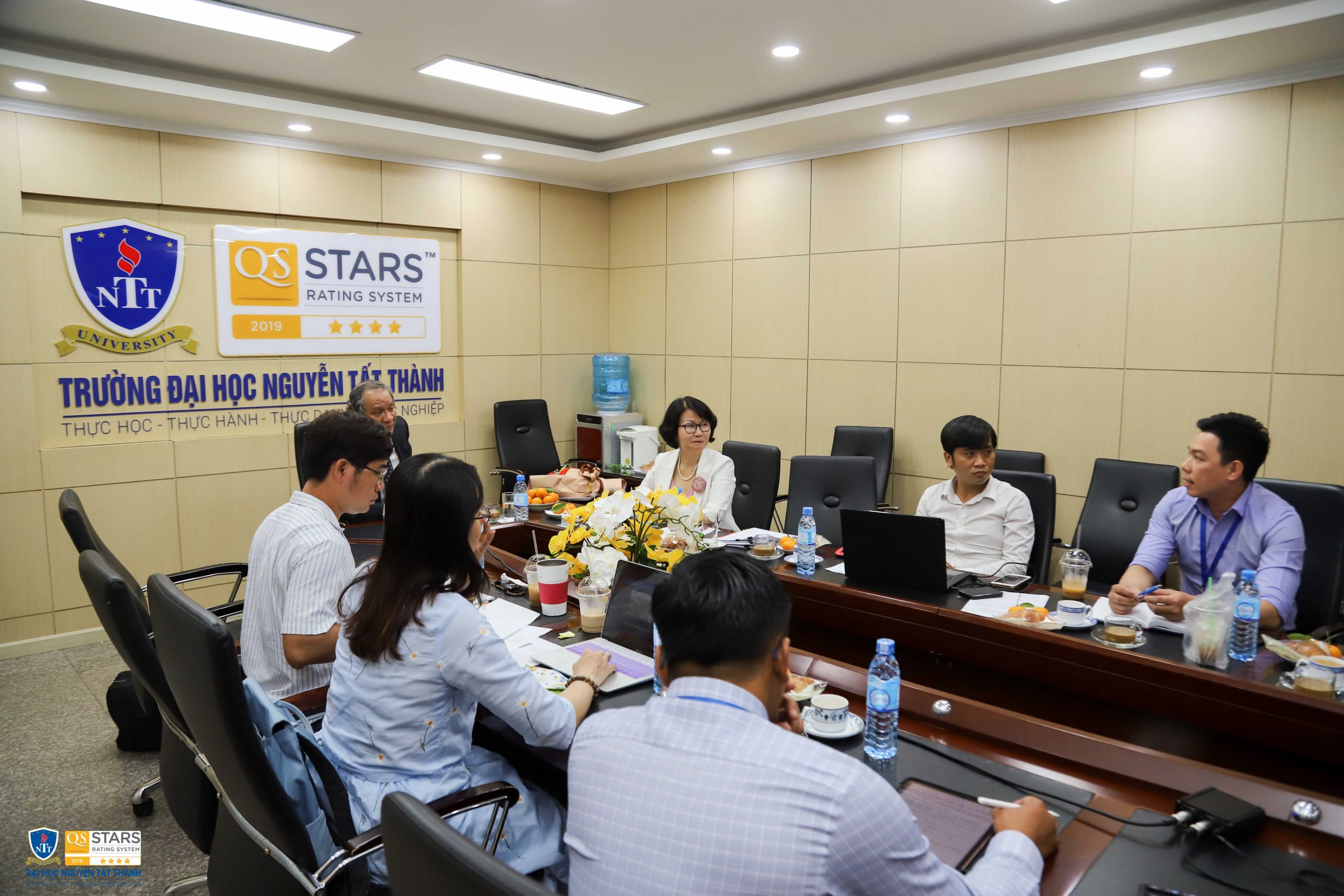
|
Speaker information Prof. Dr. Pham Hung Viet received a bachelor’s degree in Chemistry in 1975 from Martin – Luther University, Halle Wittenberg (Germany), and latter on graduated with a master’s degree and PhD in Chemistry from the Swiss Federal Institute of Technology (Switzerland) in 1987. He has been chairing 07 international cooperation projects. He is also the author/co-author of 170 articles published in prestigious international journals, more than 200 articles in conference proceedings (129 international conferences), 14 chapters of international monographs and 04 textbooks. According to Google scholar, h-index all database of Prof. Dr. Viet reached 61 with a total of more than 17,414 citations; According to Web of science, h-index = 50 with total citations of 14,959. Prof. Dr. Pham Hung Viet is currently a member of the Science and Training Council of VNU, a member of the Council for the title of Interdisciplinary Professor of Chemistry – Food Technology, major of Analytical Chemistry from 2009 to present. Prof. Dr. Viet is a member of the editorial board of the Journal of Science: Advanced Materials and Devices (SCIE, IF = 5.469, Q1), and a permanent member of the editorial board of the VNU journal, the journal of Science and Technology – Ministry of Science and Technology (version B and Version C) and the journal of Science and Technology of các nhà cái uy tín siyanks.com - App game đổi thưởng uy tín . In addition, he is co-chair of the international Analytica Vietnam conference from 2009 to present (the conference was held 6 times). |
